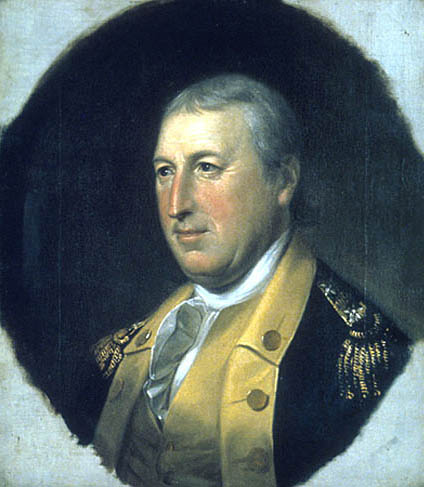
 |
|||||||||
HORATIO GATES 1728/9-1806 Charles Willson Peale, from life, 1782 Oil on canvas. H 22, W 20 in (H 55.9, W 50.8 cm) Independence NHP INDE 14053
|
|||||||||
| About this Portrait: Charles Willson Peale probably painted his museum portrait of Gates in 1782, when the subject visited Philadelphia in order to petition Congress for an investigation into his conduct at Camden. The portrait was first publicized in the 13 October 1784 issue of the Freeman's Journal and Philadelphia Daily Advertiser. Ownership History: Listed in the 1795 Peale Museum catalog. Purchased by the City of Philadelphia at the 1854 Peale Museum sale. |
|||||||||
|
|||||||||
|
|
||
|
Note: Prev/next are in alphabetic order within their respective theaters. |
||
Last Modified: